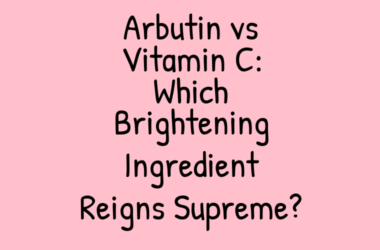Table of Contents
The Mysterious Appearance of Dark Spots: Unveiling the Science Behind the Beauty
Dark spots, also known as hyperpigmentation, are a common skincare concern that can occur in both men and women. These unsightly patches can be a major beauty bane, making us feel self-conscious and eager to find a solution. But what exactly causes dark spots to appear on our skin, and what’s happening beneath the surface to create this uneven tone?
What Causes Dark Spots?
Dark spots are the result of an excessive production of melanin, the pigment responsible for our skin’s natural color. Melanin helps protect our skin from the sun’s harmful ultraviolet (UV) rays by absorbing and scattering them. When our skin is exposed to UV radiation, the melanocytes (melanin-producing cells) respond by producing more melanin to shield us from further damage. This increased melanin production can lead to the formation of dark spots.
The Role of Free Radicals
Another culprit behind dark spots is the presence of free radicals, highly reactive molecules that can cause damage to our skin’s cells and DNA. When we’re exposed to environmental stressors like pollution, smoke, and UV radiation, our skin’s cells can become overwhelmed by free radicals, leading to an increase in melanin production. This reaction can result in the formation of dark spots, as our skin attempts to protect itself from further damage.
Hormonal Changes
Hormonal fluctuations, particularly during puberty, pregnancy, and menopause, can also contribute to the development of dark spots. Fluctuations in estrogen and progesterone levels can stimulate melanin production, leading to the formation of dark spots, especially on the face and hands.
Aging and Environmental Factors
As we age, our skin’s natural barrier function declines, allowing environmental stressors to penetrate more deeply. This increased penetration can trigger an overproduction of melanin, leading to the formation of dark spots. Other environmental factors, such as excessive heat, UV radiation, and certain medications, can also contribute to dark spot formation.
How to Address Dark Spots
So, how do we tackle this common skincare concern? Here are some effective ways to address dark spots:
* Sun protection: Avoid excessive sun exposure and use a broad-spectrum sunscreen with at least SPF 30.
* Exfoliation: Regularly exfoliate your skin to remove dead skin cells and promote cell turnover.
* Brightening agents: Incorporate products containing brightening agents like vitamin C, niacinamide, and licorice extract into your skincare routine.
* Chemical peels: Consider getting a chemical peel or microdermabrasion treatment to help remove damaged skin cells and promote a more even tone.
* Professional treatments: Consult with a dermatologist or esthetician about professional treatments like laser therapy or IPL to target dark spots.
Conclusion
Dark spots can be a frustrating and aesthetically challenging issue, but understanding the science behind their formation can empower us to take proactive steps to address them. By recognizing the underlying causes of dark spots and incorporating effective skincare practices into our routines, we can reduce their appearance and enjoy a more radiant, even-toned complexion.
Recommended Products
-
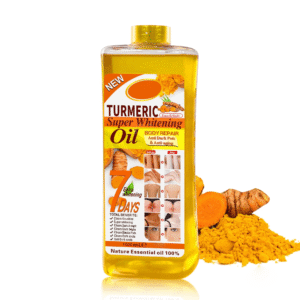 Gold Turmeric Super Whitening Body Repair Oil – 1000mlKD5.990
Gold Turmeric Super Whitening Body Repair Oil – 1000mlKD5.990 -
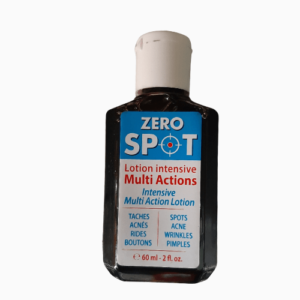 Zero Spot Lotion 60ml | Clear & Even SkinKD5.000
Zero Spot Lotion 60ml | Clear & Even SkinKD5.000 -
Product on sale
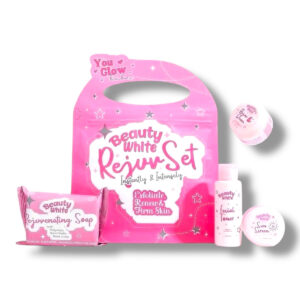 You Glow Babe Beauty White REJUV SETOriginal price was: KD8.000.KD6.000Current price is: KD6.000.
You Glow Babe Beauty White REJUV SETOriginal price was: KD8.000.KD6.000Current price is: KD6.000. -
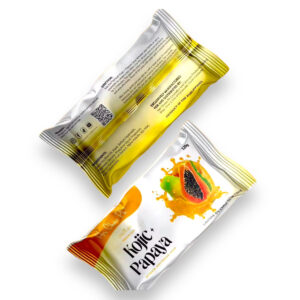 Her Choice Kojic Papaya Soap 120gKD2.500
Her Choice Kojic Papaya Soap 120gKD2.500 -
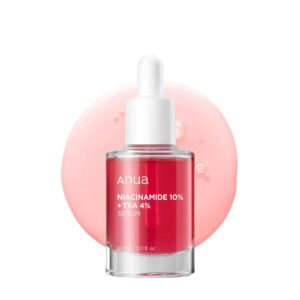 Anua 10% Niacinamide+ 4% Tranexamic Acid Dark Spot Correcting Serum 30mLKD8.000
Anua 10% Niacinamide+ 4% Tranexamic Acid Dark Spot Correcting Serum 30mLKD8.000 -
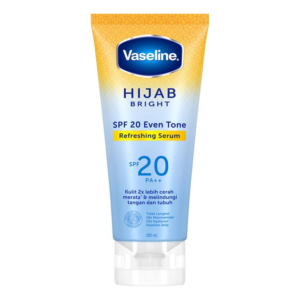 Vaseline Hijab Bright SPF 20 Even Tone Refreshing Serum – 180mlKD3.990
Vaseline Hijab Bright SPF 20 Even Tone Refreshing Serum – 180mlKD3.990 -
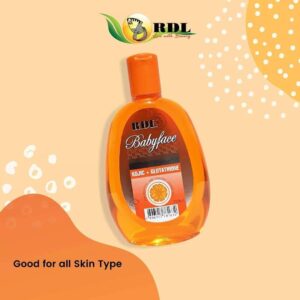 RDL Babyface Facial Cleanser with Kojic + Glutathione 250mLKD2.000
RDL Babyface Facial Cleanser with Kojic + Glutathione 250mLKD2.000 -
Product on sale
 Hami-San Best Trio SetOriginal price was: KD8.000.KD7.000Current price is: KD7.000.
Hami-San Best Trio SetOriginal price was: KD8.000.KD7.000Current price is: KD7.000. -
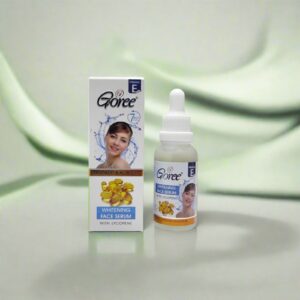 Goree Vitamin E Whitening Face Serum – 30mlKD3.000
Goree Vitamin E Whitening Face Serum – 30mlKD3.000


